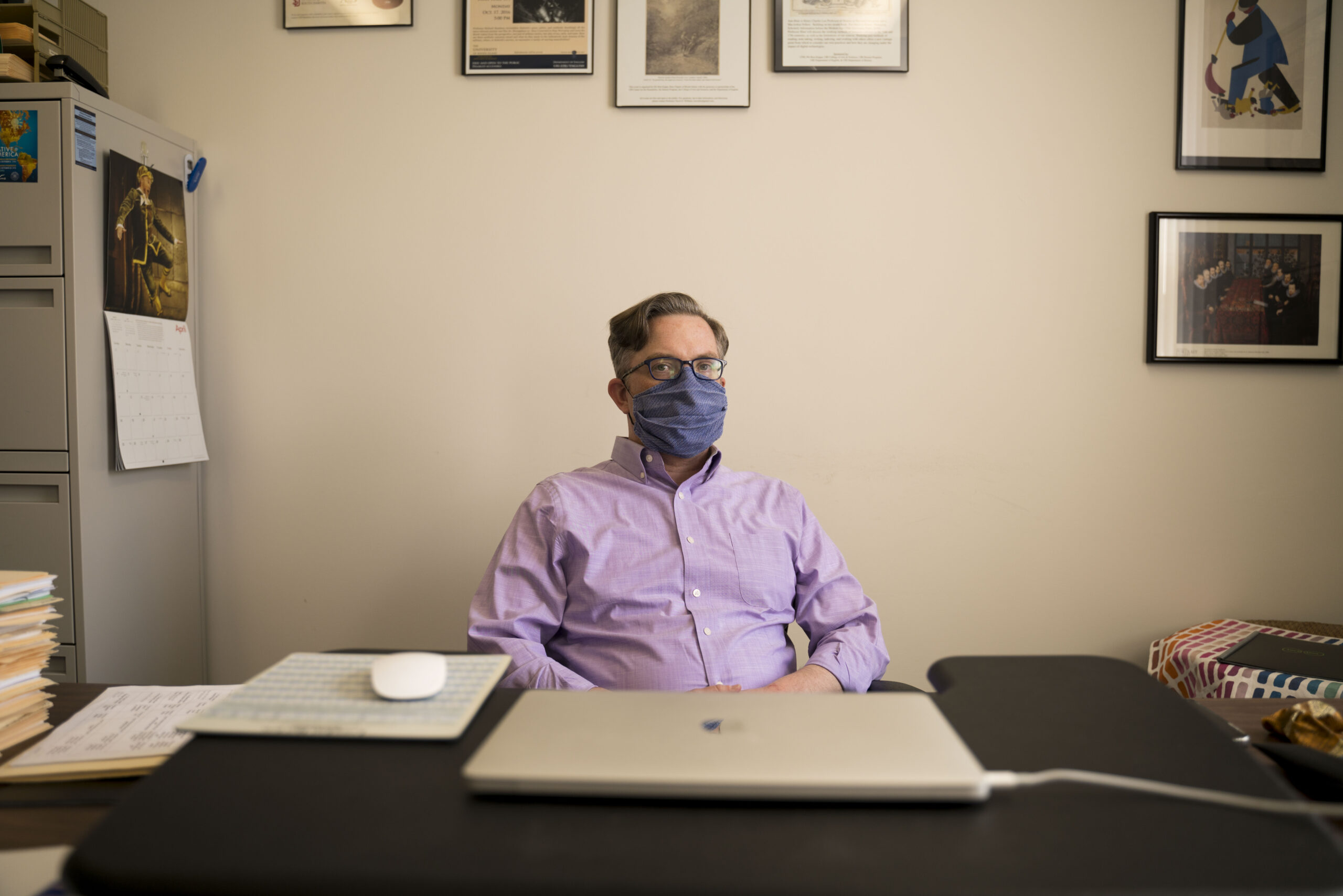Meet Travis Williams
Meet the current Chair of URI’s English Department, Professor Travis Williams. Photo by Ethan Pellegrino.
When Professor Travis Williams, the University of Rhode Island’s English department chair, enrolled in the 1996 class of the University of California Berkeley, he did not think he would come out with a bachelor of arts in English.
Williams went into UC Berkeley as a physics major, but during his freshman year, he found that he enjoyed the math courses that he was taking more than the science courses. This, along with an English course that sparked an interest in him, led him to switch from majoring in physics to majoring in English with a minor in math.
“The [English] course was focusing on subjects that aren’t normally taught in high school English classes,” Williams said. “I didn’t realize before that that the study of literature was so broad.”
Williams went on to complete his Master’s degree in English at the University of Oxford in the United Kingdom before going back to Berkeley for his Ph.D. in English. In 2006, Williams was hired as a professor at URI. He has been the chair of the English department since the summer of 2016.
“It was the first place that offered me a job and that was very welcome,” Williams said.
During his time as a graduate student, Williams taught English courses. He believes that teaching is one of the best ways to expand your knowledge in any given field or topic.
“URI is a research university and the idea is that our teaching is informed by the research we’re doing,” Williams said. “Research is always looking to expand the realm of knowledge. You only really understand something when you think about how you would explain and teach it to another person.”
His favorite course to teach as a professor is his Shakespeare class, which he tries to teach as frequently as possible while still working as the English department chair. He also has found a love for the work of John Milton in the past decade, particularly his epic poem “Paradise Lost.” While Shakespeare is something he is very confident in his knowledge of, he says his continuous learning and expanding understanding of Milton’s work makes it interesting and enjoyable for him to teach to others.
According to Williams, the study of the English language and literature requires continuous learning, which is why he believes that it is an important field of study.
“English doesn’t have final answers to questions,” Williams said. “We don’t have final answers because the data that we’re using to answer questions is always changing. This fits in well with today’s problems such as healthcare and a pandemic. Having an open and flexible mind that can manage complexity rather than solve a problem for good is something that makes the study of our language worth always coming back to.”
William’s students echo this sentiment. Lila Bovenzi, a junior at URI minoring in English, took ENG 472: Shakespeare with Williams in the Fall of 2019, and had only good things to say about the class and his teaching.
“It was one of my favorite courses that I’ve taken so far at URI,” Bovenzi said. “The class was exciting, challenging and full of important discussions. The critical eye with which we were taught to analyze and respond to texts is a useful skill that I will always carry with me. It is apparent how passionate professor Williams is, not only about Shakespeare but also about teaching and helping every one of his students.”
When Williams is not working, he loves to watch television and films, play the violin and travel the world. His favorite places that he has visited have been India, Malta and London, which he said is a second home for him.
He said his favorite thing about his department is the relationships that students and instructors form during their time at URI.
“Our classes are small, even in the undergraduate curriculum, so you’re never going to be anonymous,” Williams said. “English is a humanity, so we are interested in what it means to be a human both individually and in society.”

